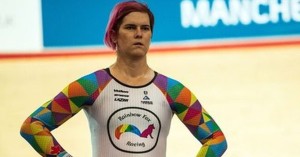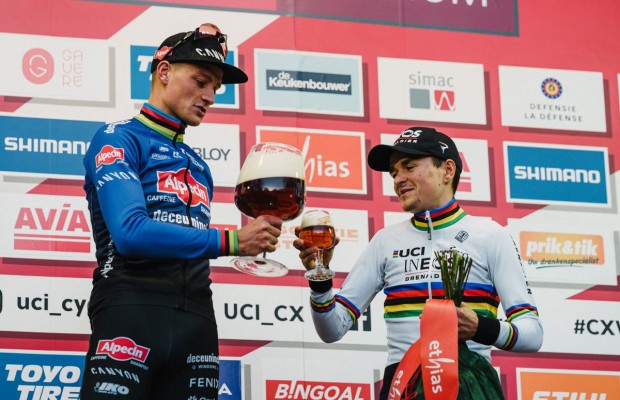UCI's dilemma in the face of trans regulations: "Are we able to guarantee fair competition?"
Cycling could not stay away from the debate that in recent months shakes the world of sport, the participation of transgender women integrated into women's competitions and the impact this may have on the development of competitions. In view of the situation, the UCI has decided to form a round table to listen to all parties, analyze the situation and adapt the regulations accordingly.

The UCI addresses the issue of transgender women
In an exclusive interview granted to the CyclingNews portal, UCI president David Lappartient spoke about one of the hot topics in the sport today, that of the participation of trans women in women's competitions. “Are we able, today, to guarantee fair competition? I can’t answer ‘no,’ but I can’t answer ‘yes’” Lappartient said.
To address the problem with all the guarantees, the highest cycling organization has decided to call a round table to “review the situation, our current position and make decisions based on what we know. We want an open debate with the participation of all parties”.
RECOMENDADO

Alcoholic beverages with the fewest calories

What would you do if you won the lottery? This cyclist bought himself a €20,000 bike

Tips for cycling in the rain

25 cycling gifts ideas to get it right

When do helmets have to be changed? Do they have an expiration date?

The best apps for cycling and mountain biking

This decision comes after female athletes raised concerns about equal competition. Current UCI rules state that transgender cyclists must declare their female gender identity and demonstrate that their testosterone level has been below 2.5 nmol/L for 24 months prior to competing in women's racing and, of course, must remain below those limits for as long as they are active.
However, there is no shortage of voices claiming that riders who have gone through puberty as men have developmental advantages that could skew the competition. “When we make a decision, it has to be based on scientific knowledge, and to date we have no proof that there is an advantage or that there isn't,” Lappartient said.

As a reference, the international federations of Athletics and Swimming have already expressed themselves in this regard and have banned the participation of transgender athletes in the female category if they have already passed puberty as men. For its part, British Cycling, which had initially banned the participation of transgender women, has created a new category called Open, in which they can participate in the same way as the participants in the men's category.
David Lappartient noted that the roundtable to define the new framework for trans women's participation will be made up of between 10 and 15 stakeholder representatives: 4 transgender women, four cis women currently competing on road and track, plus Athletes' Commission President Katerina Nash, UCI Medical Director Xavier Bigard along with other human rights and scientific experts.

“I don’t want to go directly to the conclusion because we need to have this roundtable discussion with the stakeholders. One of the solutions is to have more restrictions, not allowing [transgender athletes] to take part in women’s competition at the international level; that could be one of the options. The other option can be to modify the duration of the transition, to modify the level of testosterone; this has to be based on [scientific] knowledge.”
In any case, the current situation has generated an important controversy and puts the UCI in a complicated situation, where it tries to remain politically neutral by making reference to the fact that, despite the resolutions they may take, they have no choice but to abide by the laws of the different countries and the regulations of the national federations in their tests.